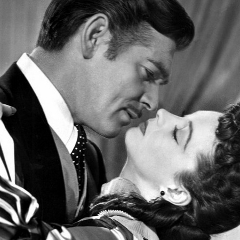We tend to say we are under-motivated because we feel lost, insecure and disheartened about our goal. This is while we wait for the desire to move forward as if by magic. Yet, according to Russ Harris, we're just confused. We're about to tell you about the motivation trap.

Last update: January 02, 2020
Who wouldn't like to feel motivated? Knowing how to take advantage of that impulse that pushes us to continue, to move forward, which whispers to us that it is possible to make our dream come true, which stimulates us to keep fighting because feeling inspired really has its charm. And then there is the trap of motivation.
When we feel motivated, everything seems possible to us, or at least everything that has to do with our goal. Yet many fall into the trap of motivation when forces falter and disillusionment and doubts arise, or when they want to achieve something but don't know where to start. Let's deepen the topic.
First, preparation is the key to success.
-Alexander Graham Bell-
What is motivation?
According to British physician and psychotherapist Russ Harris, having no motivation is impossible, since in every action we carry out there is a certain degree of motivation. Somehow, every behavior we engage in serves to achieve something.
Give a speech, eat a pastry, drive, warn that we are sick, make a phone call, sit on the sofa, read a book or talk about any topic. In each of the actions listed there is a purpose, an intention, a motivation, even if we don't realize it.
But then what does the motivation consist of? According to Harris, in the desire to do something. Feeling motivated is not feeling a powerful magic that leads us to act on instinct, nor is it a divine inspiration that pervades us, but it is the desire to do something. Nothing more.
Let's take an example to understand it better. We have been writing a novel for months, but for a week we have been feeling unmotivated because we do not have time and we are tired from work. We don't write anymore, but we spend that time watching television, talking or lying on the sofa.
In this situation, our desire to watch television or to lie down on the sofa is far superior to our desire to continue writing the novel. Now, what is important to us is that we want to write, but we have neither the time nor the desire. We feel exhausted. But so, for what purpose do we watch TV or stay on the sofa?
It can be to relax, to stay comfortable or to calm down, or to feel good for a moment, because we are avoiding bothering to write. In the long run, this conduct does not help us make our dream come true.
Wouldn't it be better if instead of the lack of motivation - just that motivation that avoids discomfort and that pushes us to do what we want in the long term - let our motivation to write make its way, publish a book or share the best of ourselves with others?
When we say that we don't feel motivated, what we really mean is that we would like to do something important for us, but that we are not willing to act if we don't feel happy, safe, confident and full of energy. So, while we feel tired, insecure, disheartened or lazy, we will hardly dedicate ourselves to that something ...
Don't sit around waiting for things to rain from the sky. Fight for what you want, take charge of yourself.
-Michel Tanus-
The motivational void and the motivation trap
When we conceive of motivation as a feeling, it is very likely that we will remain immobile. Just as when we feel good, positive or enthusiastic we are led to say that we feel motivated, but if these feelings fade or disappear, we are led to say that we feel unmotivated. But for what reason?
Very simple. Motivation understood as a feeling leads us to fall into the trap whereby we hide the most suitable feelings before taking any action, leading us to remain motionless, waiting. This is the motivation trap. The point is: do we really think motivation will appear as if by magic?
Now if we understood motivation as a desire rather than a feeling, it would change: we would probably change our attitude. In this sense, we could evaluate our desires and identify what motivates us in each of our decisions. Furthermore, we could distinguish between desires that are intended to prevent malaise and those that are akin to our values.
It is up to us to lead a life guided by the desire to avoid everything or one that is based on values. Yes, we cannot forget that among our most primordial instincts there is the desire to avoid malaise, so it is not possible to eliminate this tendency; instead we can decide to act according to our values. The point is not necessarily to be motivated, but rather to engage in what we want.
So, according to Russ Harris, commitment is the first step; feeling motivated comes later. That is to say that actions come first and feelings second. Much better and more satisfying is to act according to our values, even more so if feelings that we desire appear later on. However, this does not always happen, as there are no guarantees in terms of feelings.
The arguments of our mind
To the trap of motivation we must add all those messages that the media, certain books and certain people continually throw us about what strategies are needed to feel motivated. Often it is mostly about discipline and willpower. By believing these messages, we will again fall into the trap of motivation.
- First, we will venture out in search of that magic formula that makes us feel motivated, instead of committing to action.
- Secondly, when we have not found it, we will make the decision to leave the company because the discipline or willpower that characterizes us is not enough.
At this point, on reflection, we will realize that the discipline and willpower are just another way to indicate commitment that is based on a set of values, as well as doing what is necessary to get what we want, even if in some moments we don't feel motivated.
We just need to get rid of the belief that the desire will appear as if by magic to instead start cultivating the commitment made with our goal. Don't forget: we must first act consistently with our values, regardless of how we feel. And, once this habit is acquired, discipline or willpower will appear.
The time has come to leave the waiting room of motivation to make room for commitment to our goal, and according to our values. Only in this way will the long-awaited desire appear, the one that somehow pushes us to make our dreams come true.


























